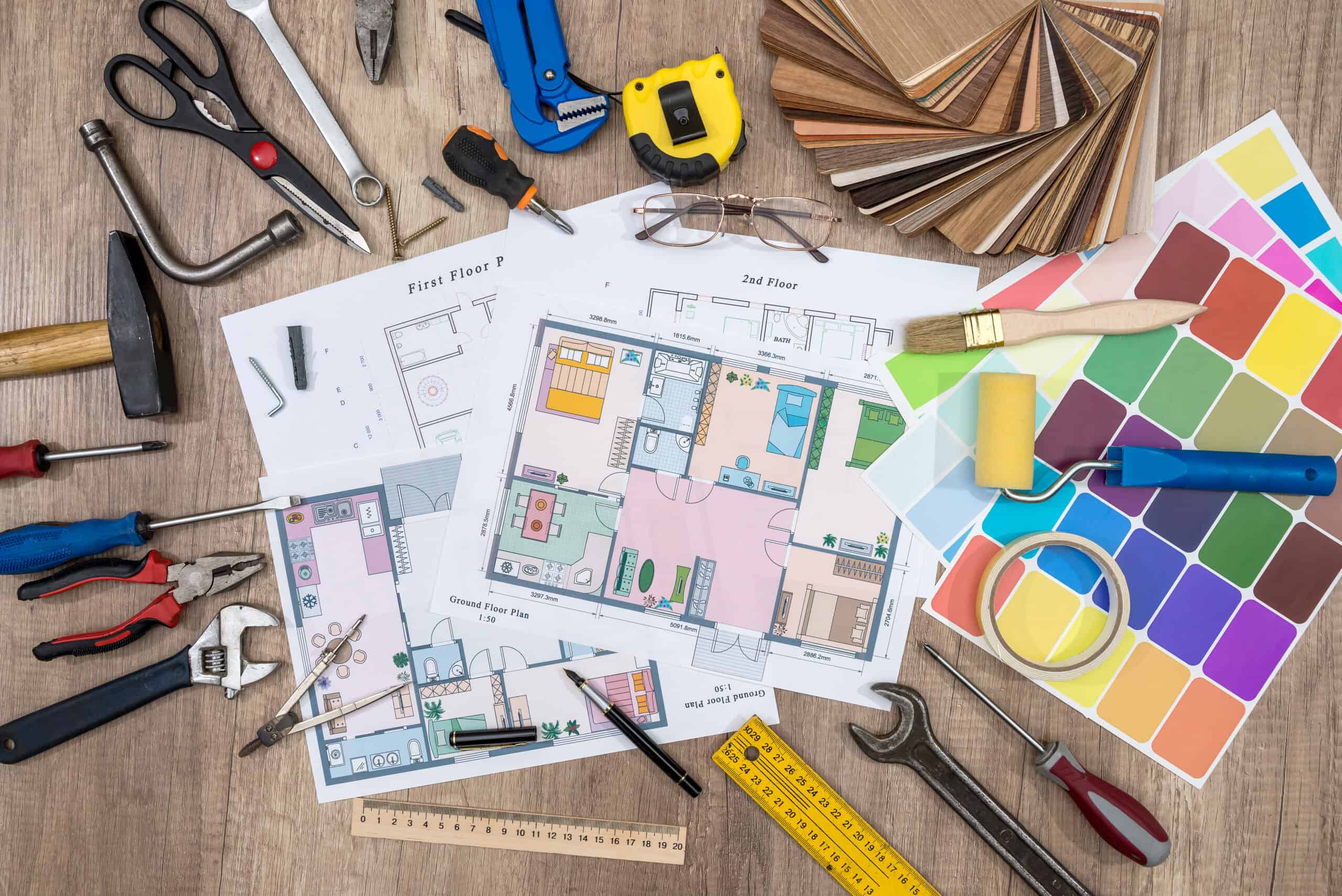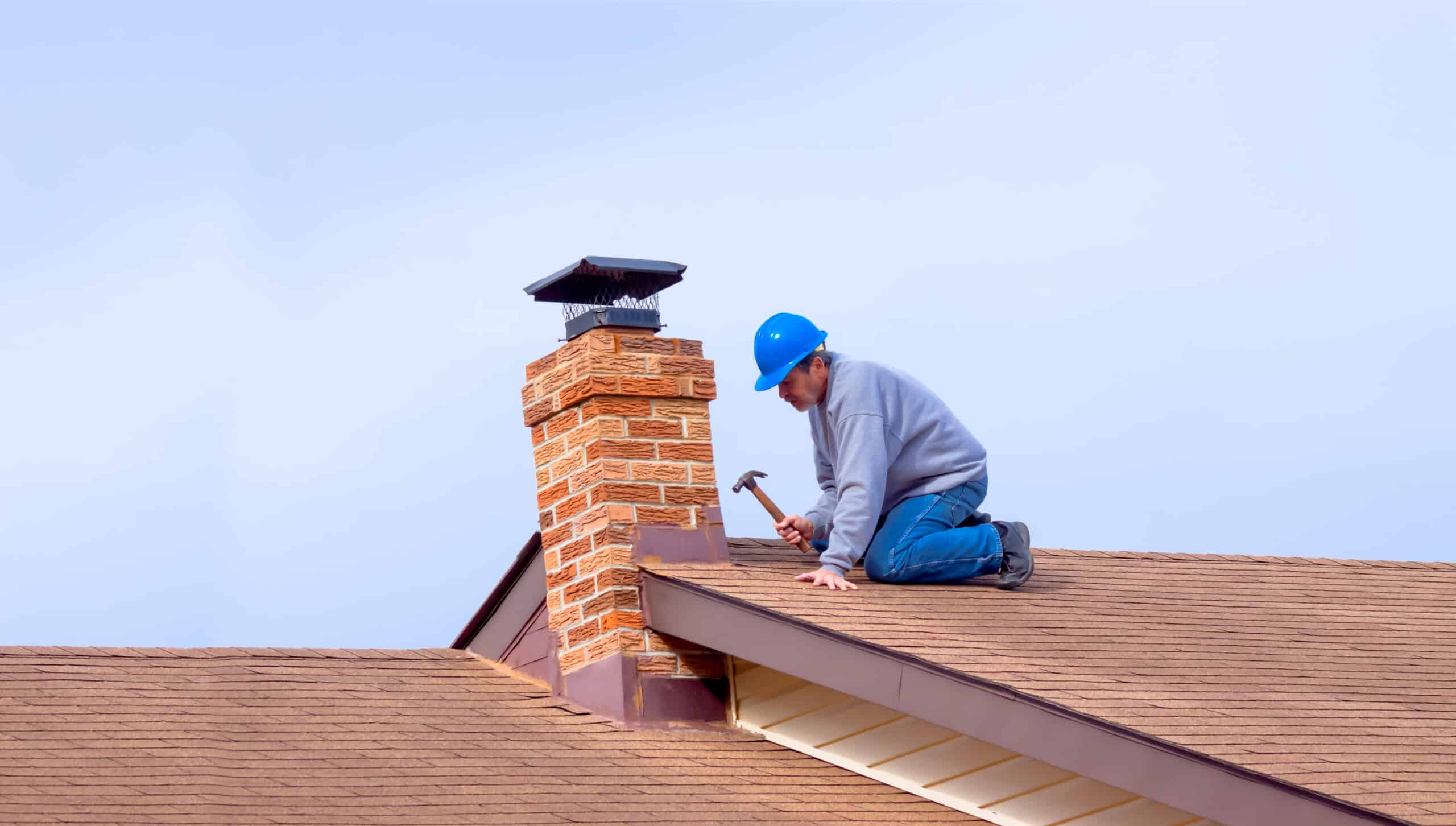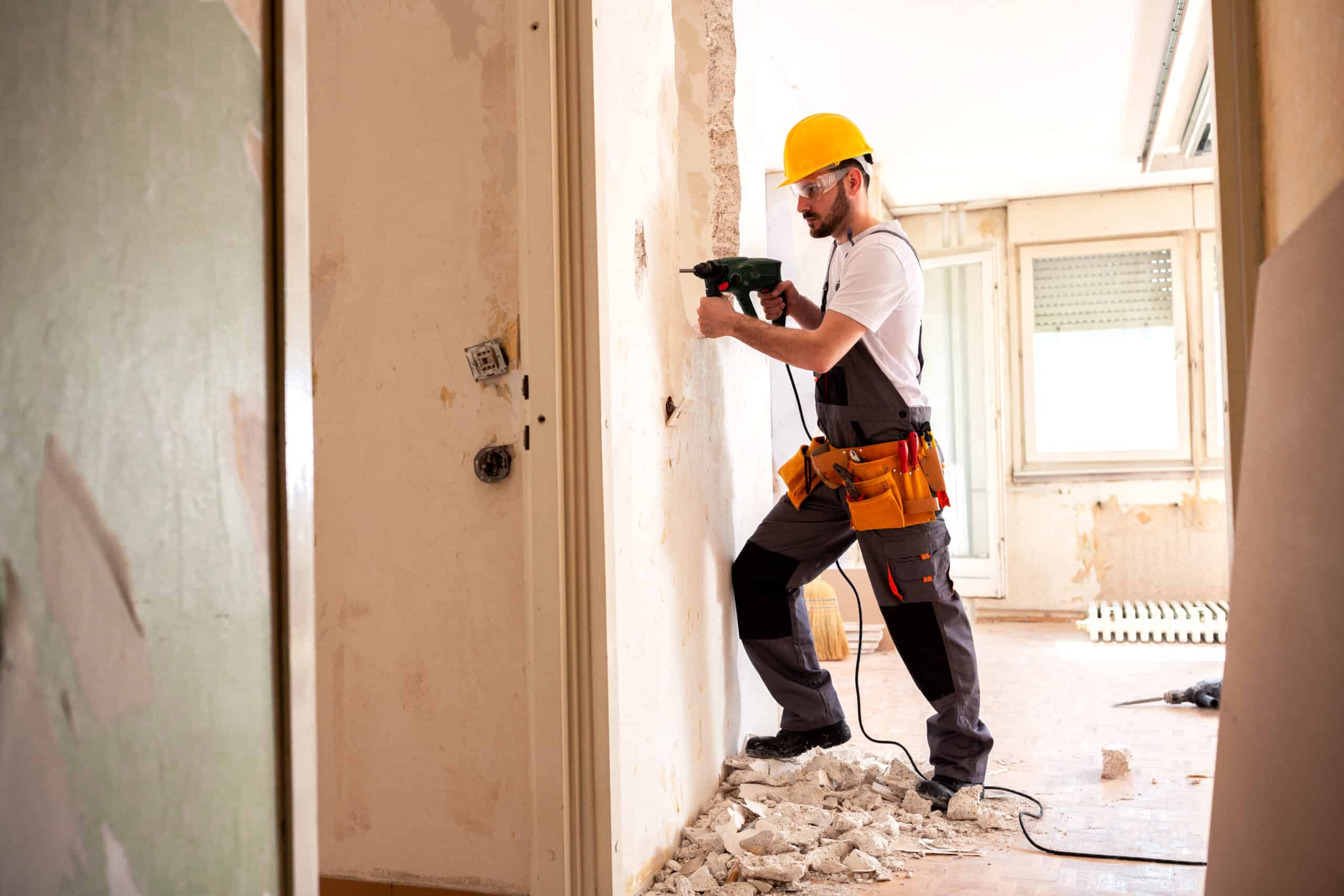
Renovating a home requires a lot of work. Before any of that work can even begin, you will likely need to get the correct building permits. It’s estimated that more than 80 percent of homeowners will forgo appropriate permits during a remodel. But starting a project that requires a building permit without the proper paperwork could mean serious consequences down the line.
Some small projects — such as painting, changing a sink, and installing storm windows — likely won’t require a permit. However, every state, county, and city has its own rules and regulations. It’s important to always check with your local jurisdiction before starting a home project to avoid fines, delays, and other disturbances.
You could put yourself in danger.

The whole point of a building permit is to ensure your own safety. When you file the paperwork describing the work you plan on doing in your home, you give the authorities a chance to review your plan and catch potential hazards. For instance, without the proper permits, you could tear down a load-bearing wall or create a fire hazard without even knowing it.
Even though many homeowners see building permits as a nuisance, they exist for a reason, and that is to ensure that homeowners and any laborers hired to do a job are as safe as possible.
Local jurisdictions could implement a stop work order.

Sure, you may know someone who refinished their kitchen without a permit and the city was none the wiser. But that doesn’t mean you should follow suit. According to Family Handyman, a building inspector could pop by unannounced if they happen to drive by your home and don’t see a permit posted conspicuously. While this scenario may seem unlikely, the risk isn’t worth the reward. If your city finds out that work is done without a permit, they could implement a stop work order immediately.
In addition, neighbors have been known to rat out unpermitted worksites. Maybe they become disgruntled when construction is louder than preferred, or their view is suddenly blocked. Filing a permit may not improve your neighborly relationship, but it will certainly keep you in the clear in case someone tries to report you.
You’ll have to pay a fine.

According to the California Contractors State License Board, contractors who perform jobs without the proper permits could be required to pay a fine of up to $5,000 per violation. Plus, their license could be revoked.
Renovations, remodels, and other home projects are expensive enough to begin with and typically come with unexpected costs. Without the proper paperwork and permits, even more unforeseen charges are bound to be added to your bottom line.
You may have to tear down the entire project.

That’s right — all your hard work could be gone in an instant. A building inspector has no way to confirm that the work performed in your home was done properly when permits aren’t issued. According to Cornerstone Managing Partners, inspectors are well within their rights to ask you to tear down a newly installed wall so they can examine the work that was completed. If they see the renovation violates too many codes or isn’t safe, they can force you to tear down the entire project.
Without the proper permit, you may end up paying for your renovation two, or even three, times over.
Insurance can deny claims.

Even if the renovation was completed years ago, you’re not necessarily in the clear. Anything could happen at any time, including fires, natural disasters, and job site injuries. There is good news, though — depending on where you live and the work performed, you may be able to apply for a retroactive building permit.
You could have problems selling.

Buying and selling a home is stressful enough as it is. When it comes time to sell, various issues could arise if you’ve had work completed without a permit.
According to The Balance, appraisers may not include square footage that was added during an unpermitted remodel in the final appraisal. This could lead to a rejection when applying for mortgage refinance or a loan. Buyers also may be turned off by the headache of dealing with insurance claims and retroactive permits, leaving sellers with fewer options.
Filing the paperwork for a building permit is a hassle. It requires time, energy, money, and patience. However, permits are necessary for performing renovations and remodels properly. They will ensure that you are safe — not only during the construction, but during your lifetime inside the home. Instead of skipping out on a permit due to the inconvenience, get the work done right and save yourself from problems later down the line.
Get Ready To Retire (Sponsored)
Start by taking a quick retirement quiz from SmartAsset that will match you with up to 3 financial advisors that serve your area and beyond in 5 minutes, or less.
Each advisor has been vetted by SmartAsset and is held to a fiduciary standard to act in your best interests.
Here’s how it works:
1. Answer SmartAsset advisor match quiz
2. Review your pre-screened matches at your leisure. Check out the advisors’ profiles.
3. Speak with advisors at no cost to you. Have an introductory call on the phone or introduction in person and choose whom to work with in the future
Thank you for reading! Have some feedback for us?
Contact the 24/7 Wall St. editorial team.
